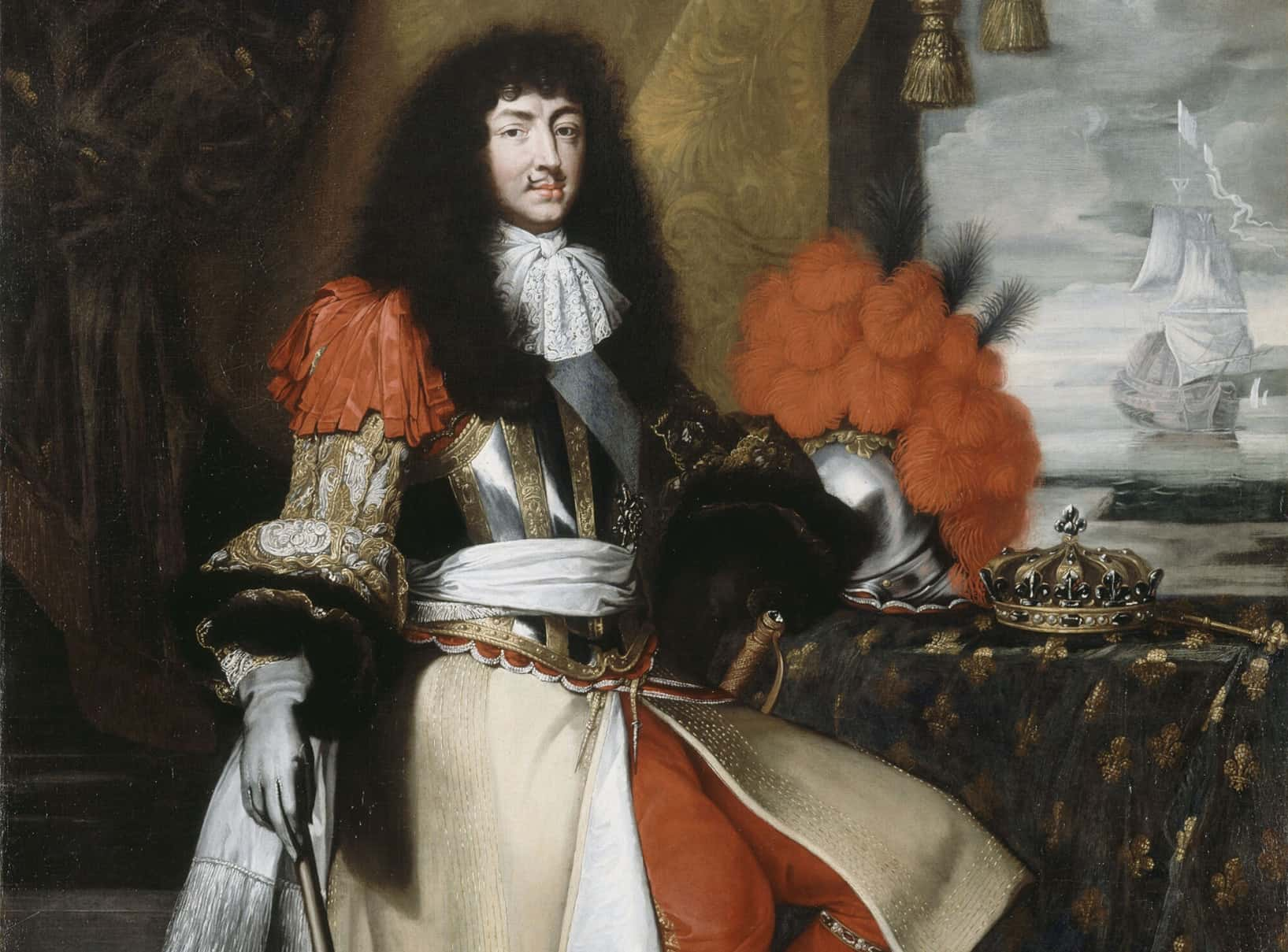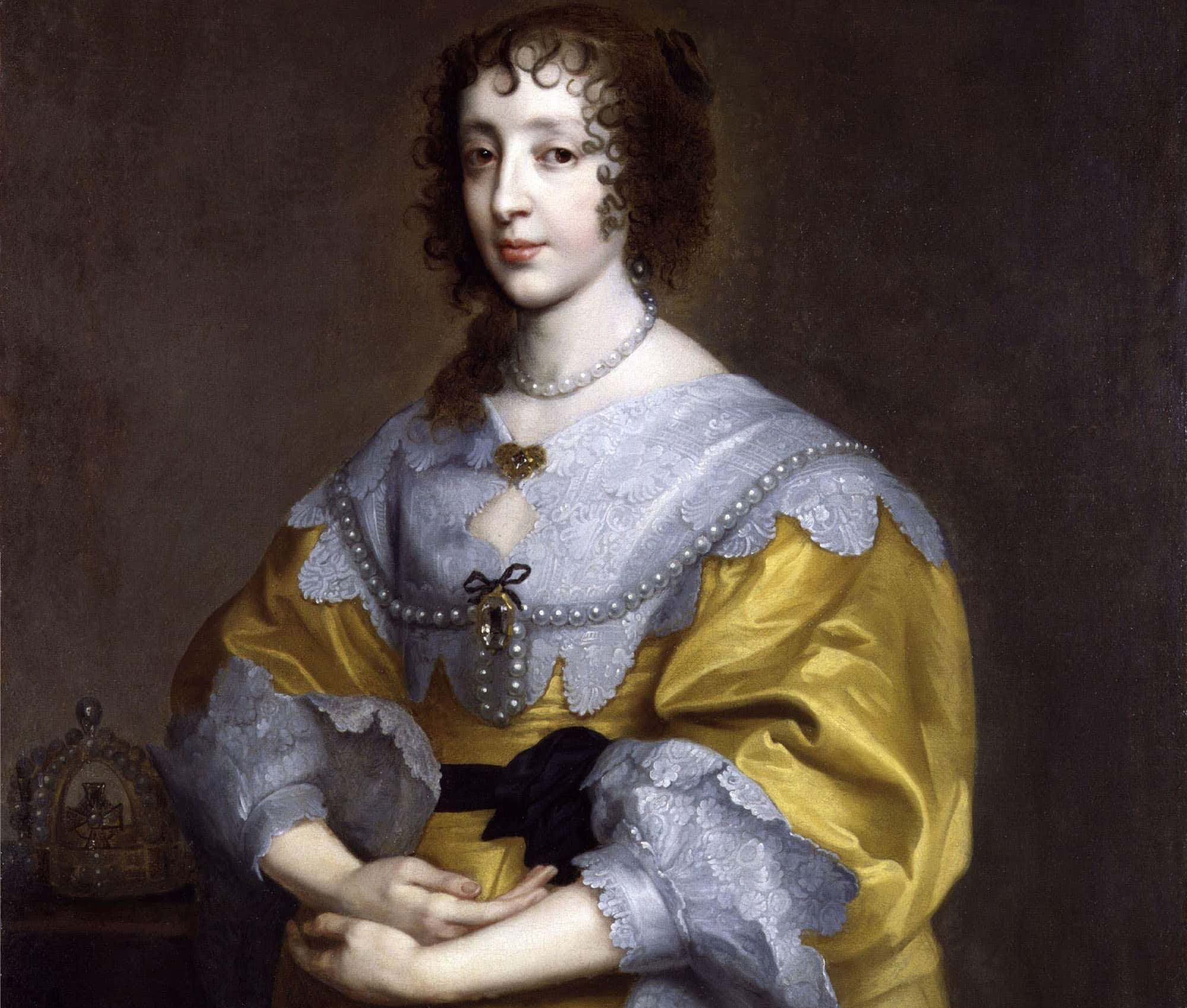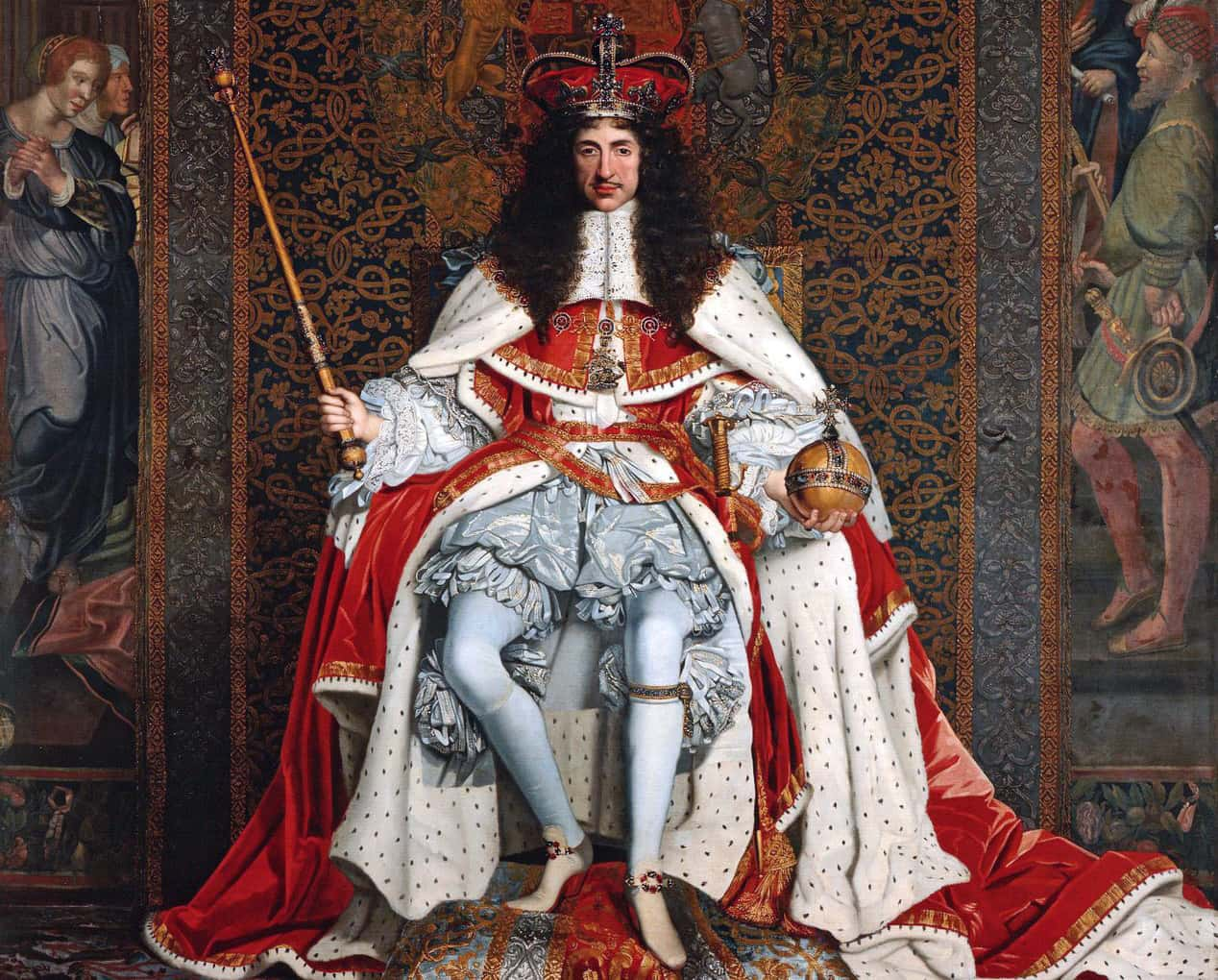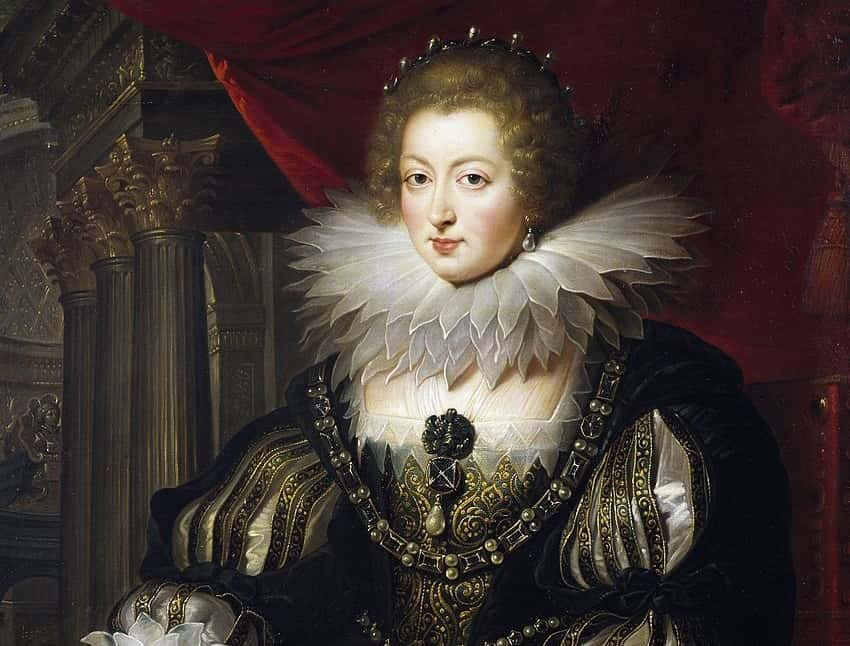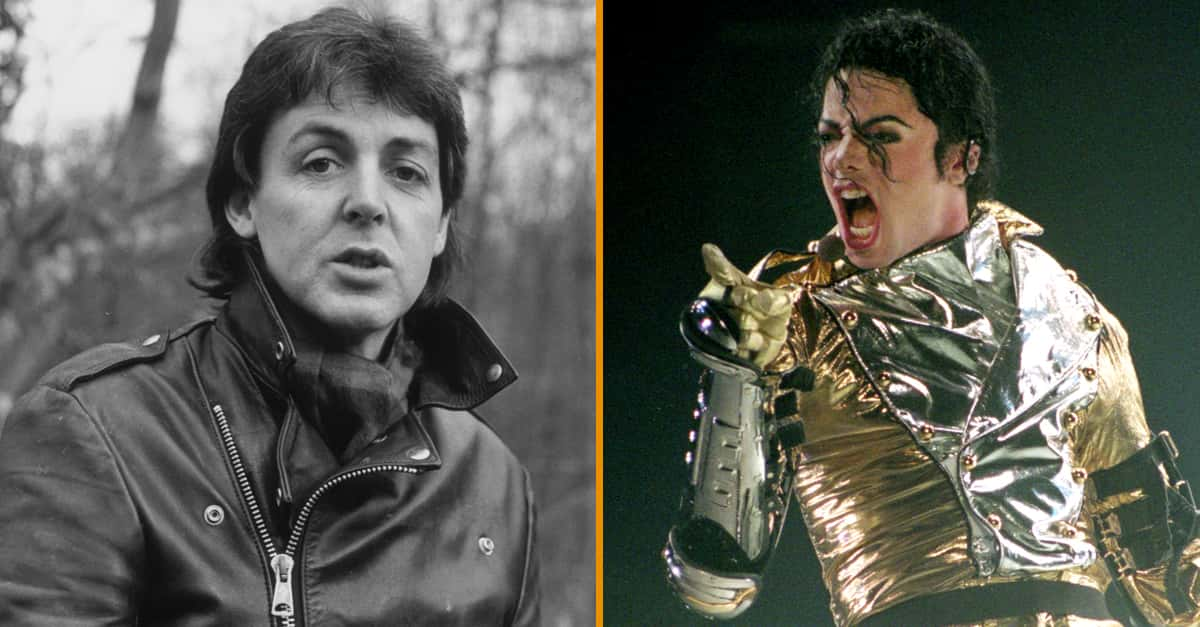The Most Scandalous Woman At Versailles
When Henrietta of England was born, her world was already a mess. She found herself at the center of politics, power grabs, and torrid affairs. But where others would run and hide, Henrietta was happy to stand front and center, fighting over lovers with her husband and making her own power moves. And even after her tragic end, she remained the topic of gossip.
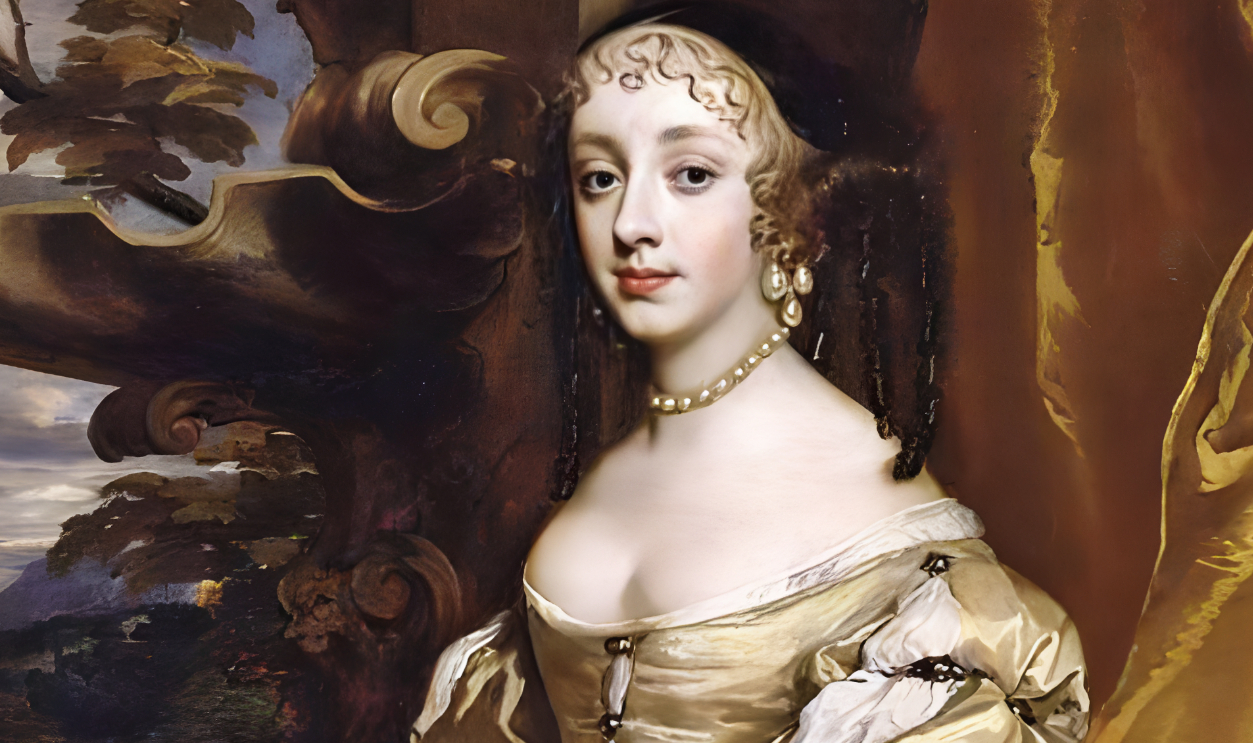
1. She Was Born Into Trouble
By the time Henrietta came into the world, there was already trouble afoot: Her father was in the process of being dethroned. In fact, the Second Battle of Newbury marked the night the little princess was born. This was a battle that her father, King Charles I of England, fought and lost against the armies of Parliament that opposed his reign in 1644.
But while Henrietta's father was tougher than nails, her mother was also a force to be reckoned with.
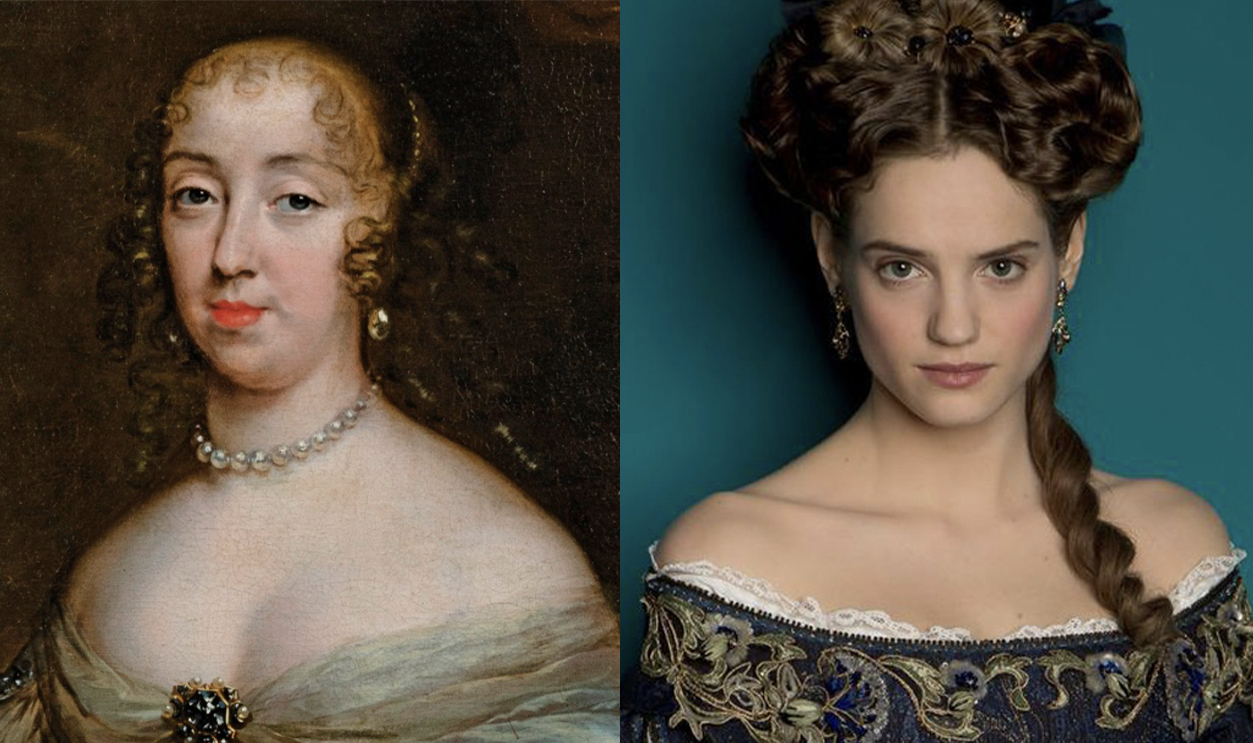
2. Her Mother Was Tough
Henrietta’s birth was very hard on her mother. The queen’s health was in bad shape and the birth brought her within an inch of her life. But, not only did the queen safely deliver the baby, within a month, she was also already up and working to ensure her daughter’s escape from the country. Their homeland was no longer safe.
3. French Royal Connections
Little Henrietta's cousin was none other than King Louis XIV, France’s reigning monarch. Her mother, knowing she could pull a favor from the French royal family any time she wanted, traveled over the channel to find safe haven and requested assistance for her husband’s doomed conflict.
It was a smart move, and it ended up sealing Henrietta’s future.
4. Goodbye Father
Shortly after separating from her mother, Henrietta’s father finally came home...but it was a very short homecoming. You see when King Charles was finally able to meet his daughter, she was already over a month old and destiny was about to tear them apart once again. With the civil war reaching its ruinous conclusion, Henrietta had no choice but to leave her father behind and begin a dangerous journey to France.
5. The Nanny
Anne Douglas, also known as Lady Dalkeith, delivered Henrietta and was also Henrietta’s godmother. She was very aware of the dangers of harboring King Charles’ daughter. Nevertheless, in June 1646, she secretly made her way to France with three-year-old Henrietta. But not before coming up with an ingenious plan to ensure their safety.
6. She Dressed Down
The journey to France required planning and secrecy. Lady Dalkeith, and most importantly Henrietta, had to disguise their identities and avoid being caught. The two dressed up very un-royaly. They concealed their noble stature by disguising themselves as peasants, something that, even at three years old, the pampered princess found very upsetting...and she put herself in grave danger because of this.
7. She Almost Met Her End
Henrietta was too young to understand that, due to her father’s identity, revealing hers to strangers could lead to her losing her head—which almost happened one time when she complained to some townspeople on the journey about how she was used to much finer garments. Needless to say, her foolish comments gave Lady Dalkeith the fright of her life.
But fortunately for Henrietta, a lavish life was waiting for her at her new home.
8. She Lived In The Louvre
Henrietta reunited with her mother in France, and as far as political fugitives go, the two of them had it pretty good. The pair found a new home for themselves in the Louvre (yes, that Louvre). They were also provided with a generous monthly allowance of 30,000 lives. But no amount of gold and riches could mend the pain of having their family torn apart.
9. She Fit In Just Fine
Despite the new surroundings, and the tragic circumstances that forced her to leave her home, Henrietta had no problems fitting in to her new life. The French court adored her, and Henrietta soaked in the attention. She dazzled her audiences with her graceful dance moves and reveled in the extravagances her new life offered her.
But as much as she tried to ignore it, there was no escaping the tragic fate awaiting her father back home.
10. She Missed Her Dad
Henrietta’s mother didn’t forget about her husband King Charles I just because she and her daughter were building a better life for themselves. She even sent whatever money she got to Charles and his supporters in England, even if doing so made it difficult to sustain her and her daughter’s lavish lifestyles in France. Unfortunately, no amount of money could save Henrietta’s father’s life.
11. They Couldn’t Save Him
On January 30, 1649, the parliamentary army publicly beheaded Henrietta's father, King Charles I of England. But despite his terror, the king was stubborn till his last breath. On the frosty morning of his execution, he reportedly asked for extra layers of clothing to prevent any shivers caused by the cold. He worried that the onlooking crowd would read his shivering as fear of his impending doom.
A month later, the news of Charles’ demise, which would greatly affect their fate, reached Henrietta and her mother.
 Cromwell (1970), Columbia Pictures
Cromwell (1970), Columbia Pictures
12. She Was An Unwanted Bachelorette
With her father gone and her family resources drying up, Henrietta’s marriage prospects weren’t looking very promising. She didn’t lack beauty or charm, but she was still a fugitive princess, which posed many complicated issues. Therefore, even when the likes of the Duke of Savoy and the Grand Prince of Tuscany asked for her hand in marriage, they eventually broke off the engagements.
Nonetheless, Henrietta’s mother refused to give up on securing her daughter a good betrothal.
13. She Followed Her Mother's Lead
Never mind princes and dukes, Henrietta Maria aimed much higher. Unperturbed by her daughter’s shaky political status, Henrietta Maria’s standards for Henrietta’s prospective husbands remained very high. She wanted to secure a union for her daughter with Louis XIV, Henrietta’s cousin and the King of France himself. But things weren’t going to work out so well.
 Versailles (2015-2018), Canal+
Versailles (2015-2018), Canal+
14. She Couldn’t Become The Queen Of France
The French queen mother, Queen Anne, stood in the way of Henrietta’s marriage to her son Louis. She wanted to make Maria Theresa of Spain, Louis’ wife instead. Although, as we’ll see later, that didn’t exactly stop Henrietta and Louis from falling for each other. For now, however, Queen Anne decided that her other son, Philippe, should become Henrietta’s husband.
There was, however, one thing standing between Henrietta and Philippe.
15. Her Fiancé Was The Life Of The Party
When Prince Philippe was a young boy, his mother used to call him her "little girl" and dress him in feminine clothing. The prince grew up to become a popular socialite and a notorious social rule breaker. His hobbies included attending balls in female clothing, and his many male lovers were always the topic of gossip with the French upper echelon.
In conclusion: he didn’t need a fugitive princess tying him down. At least, that's exactly how Philippe felt at first, but then, he completely changed his mind after a shocking event occurred...
 Versailles (2015-2018), Canal+
Versailles (2015-2018), Canal+
16. Her Brother Became King
Marrying a fugitive princess might not sound very appealing, but what if she became the younger sister to the King of England? In 1660, Charles II, Henrietta’s older brother, took his father’s throne. Suddenly, Philippe was more than eager to marry the princess. However, before Henrietta could wed, there was one important thing she had to do.
17. She Finally Returned
It was finally time for Henrietta to visit her homeland. The last time she'd breathed in England's air, she'd been three years old. Unfortunately, she never expected this anticipated pilgrimage to turn so sour. Not long after, Charles II took the throne, two tragedies struck her family, dampening the joy of the newly won throne.
18. She Endured Multiple Tragedies
Henrietta’s brother Prince Henry and her sister Princess Mary both perished a few months apart after succumbing to smallpox. Henrietta remained in England to mourn them until January 1661. After that, it was time for her to return to her second home where her husband-to-be was patiently waiting. But this was not a marriage borne of love, and it was destined for disaster.
 Versailles (2015-2018), Canal+
Versailles (2015-2018), Canal+
19. She Was An Expensive Bride
On March 30, 1661, Henrietta and Philippe became husband and wife and had a wedding worthy of royalty. Charles II was a very doting older brother, sending his sister back to France with a huge dowry of 840,000 livres, along with other luxurious gifts. After the ceremony and grand celebrations, Henrietta officially became the Madame, la duchesse d'Orléans.
Still, her married life got off to a rather rocky start.
20. She Was An Unfaithful Wife
Henrietta was a shameless flirt, and as she didn't love Philippe, she felt no guilt in pursuing other men. The only problem was, she set her sights on the wrong man. Not even a year after getting married, Henrietta started wooing Philippe's older brother, King Louis. And it gets worse. She and Louis were so open with their affections towards each other that an embarrassed Philippe threw a fit and complained to his mother. This...did not go well.
 Versailles (2015-2018), Canal+
Versailles (2015-2018), Canal+
21. She Distressed The Queen
Queen Anne might have been successful in preventing an official union between Henrietta and Louis, but she was at a loss when it came to putting an end to their romance. She scolded the two and asked them to put an end to their unorthodox relationship. Alas, rumors of an affair between the king and the Duchess of Orléans were already spreading like wildfire, and they only got worse.
22. She Took Her Husband’s Lover
Having a romantic relationship with Louis was one thing, but when Henrietta got involved with the Count of Guiche, she was just asking for trouble. Armand de Gramont, the Count of Guiche, was a French nobleman known for his great looks and not for his personality. Why was Henrietta’s involvement with him a problem, you ask? Well, he was one of her husband’s past lovers.
23. He Got His Revenge
Philippe might have not loved his wife, but he fell head over heels for the Count of Guiche, so he was naturally unhappy when his wife dallied with the man of his dreams. To retaliate against Henrietta, he went full-blown rake and had his own affairs and romantic endeavors with both men and women. As for the Count of Guiche, he paid a heavy price for his entanglement with the Madame.
 Versailles (2015-2018), Canal+
Versailles (2015-2018), Canal+
24. She Sent A Man To Exile
In 1665, Philippe complained again to his doting mother about Henrietta’s affair with the Count of Guiche. Since this wasn’t the king, the queen actually had the power to take action and she had the count exiled from France. In this fashion, the cold war between husband and wife got even icier. Still, there was one thing they were in agreement on—the desire for a male heir. Sadly, this too ended in disaster.
 Versailles (2015-2018), Canal+
Versailles (2015-2018), Canal+
25. She Lost Her Greatest Hope
Henrietta finally had the son she always wanted in 1664, but Philippe Charles’ fate was a tragic one. At first, both mother and father felt delighted to finally have a baby boy. Philippe excitedly wrote to Henrietta’s brother, Charles II, to inform him of the birth of the healthy child. However, poor Philippe Charles ended up tragically passing just two years later after suffering from convulsions.
Having just lost her son, Henrietta couldn’t catch a break. Another tragedy soon followed.
 Versailles (2015-2018), Canal+
Versailles (2015-2018), Canal+
26. She Had To Say Goodbye To Her Mother
By 1669, Henrietta’s mother, Henrietta Maria, was already an ailing 59-year-old woman. She relied on opiates to manage the pains in her aging body, but the quantity she took wasn’t properly managed. On September 10, the dowager queen ended up overdosing and losing her life, leaving Henrietta, who had been by her side all this time, distraught.
And to make matters worse, Henrietta’s husband really couldn’t read the room.
27. Her Husband Was A Gold Digger
Prince Philippe was always more interested in the wealth and influence of Henrietta’s family than the woman herself. That was why he decided to marry her, after all. He didn't try to hide this fact either. Thus, when Henrietta Maria passed, his priority was securing her assets for himself. And the worst part of all? He didn’t even bother to wait until after his wife buried her mother.
Needless to say, this didn’t sit well with Henrietta, so she decided to get her own petty revenge.
28. She Had A Formidable Rival
Aside from the Count of Guiche, there was another man who held a very special place in Philippe’s heart—that was the Chevalier de Lorraine. The Chevalier was Henrietta’s most troublesome rival. The man, who was allegedly "as beautiful as an angel," became Philippe’s lover even before he and Henrietta were a thing. And the prince’s devotion to him was something else…
 Versailles (2015-2018), Canal+
Versailles (2015-2018), Canal+
29. She Was The Third Wheel
The Chevalier de Lorraine had an incredible hold on Philippe’s heart and he stuck close to Henrietta’s family. Starting in 1666, Philippe kept Lorraine by his side, within his household, promoting his title as necessary to keep him close. But after the stunt Philippe pulled following Henrietta Maria’s passing, Henrietta decided to put an end to this strange arrangement.
 Versailles (2015-2018), Canal+
Versailles (2015-2018), Canal+
30. Her Rival Was Fearless
Henrietta took her complaints about the Chevalier de Lorraine up to the only figure that could make him go away—the king. Louis had Lorraine imprisoned in 1670, but this punishment wasn’t enough to keep the bold philanderer at bay. Not feeling threatened in the slightest, Lorraine warned that one word from him could easily put an end to Philippe’s marriage to Henrietta.
Well, the princess wasn’t going to stand there and take Lorraine's vicious threats.
 Versailles (2015-2018), Canal+
Versailles (2015-2018), Canal+
31. She Failed To Get Rid Of Him
Henrietta took great offense in Lorraine's bold claims, and she had King Louis banish him to Rome. Unfortunately, he returned to pester her again in no time. Only a month after the king banished him, he was back to flaunt his influence. Philippe had gone to the king, begging on his lover's behalf. To Henrietta's dismay, Lorraine was back in play.
32. She'd Come Back To Haunt Him
Having exhausted her options, Henrietta had no choice but to put up with Lorraine. This lecherous rake certainly had his claws in her husband, but their rivalry was far from over. Although their feud came to a standstill, Lorraine would one day find himself embroiled in a controversy concerning Henrietta herself. For now, however, Henrietta had other fish to fry.
 Versailles (2015-2018), Canal+
Versailles (2015-2018), Canal+
33. She Made Famous Friends
Henrietta was an educated princess who had many cultured hobbies. She was famous for being a patron of the arts. She was also pen-pals with a number of important French literary figures, such as Moliere, Racine, and La Fontaine. Moreover, the princess had her own impressive collection of paintings that included works by the likes of Corregio.
But that wasn't all. As she grew older, Henrietta yearned to dip her toes into the world of politics.
 Versailles (2015-2018), Canal+
Versailles (2015-2018), Canal+
34. She Went On A Business Trip
After failing to break up her husband and the Chevalier de Lorraine, Henrietta turned her back on them and decided to take a trip to England. But this voyage wasn’t just for leisure...Henrietta had her own designs there. She wanted to assist her brother, King Charles II, in securing a secret treaty with France that would see England abandoning its Dutch allies and assisting France in its conflict with them. However, a certain someone tried to sabotage her plans…
 Versailles (2015-2018), Canal+
Versailles (2015-2018), Canal+
35. Her Husband Tried To Stop Her
Following the clash between Philippe and his wife regarding the Chevalier de Lorraine, Philippe felt strongly about not letting Henrietta run to her brother in England. He wanted to keep her tied to him despite their hatred towards each other; he saw this as justifiable punishment. Thus, he stood in the way of her getting clearance for the trip to England. But that’s not all.
Philippe had other petty reasons for not wanting her to go.
 Versailles (2015-2018), Canal+
Versailles (2015-2018), Canal+
36. He Was Jealous
Even a decade into her marriage, Henrietta was still uncomfortably close to her husband’s brother, closer even than Philippe was to him. As time passed, she became interested in politics and King Louis shared state secrets and affairs with her that even her husband wasn’t privy to. This made Philippe angry and jealous.
Henrietta cheating on him with his brother, subsequently turning him into the laughingstock of the court, was more than enough humiliation—he didn’t want that happening again. But as much as tried, Philippe just couldn't tame Henrietta.
 Versailles (2015-2018), Canal+
Versailles (2015-2018), Canal+
37. Her Trip Was A Success
Since Henrietta and Louis were already on good terms, Henrietta didn’t have much trouble presenting her case to the king and convincing him to send her as an envoy to England. She arrived on May 26, 1670, to assist in negotiations between her motherland and adoptive country. Less than a week later, on June 1st, England and France signed the Treaty of Dover.
However, Henrietta didn’t even get the chance to celebrate this achievement.
 Versailles (2015-2018), Canal+
Versailles (2015-2018), Canal+
38. Her Health Was In Bad Shape
One thing that makes Henrietta’s part in the formation of the Treaty of Dover impressive, but also equally sad, is that she did it while dealing with mounting health issues. Before she left for England, Henrietta had been suffering from digestive problems and severe pain in her side. On top of that, she made the arduous journey from France to England and back again, and acted as a diplomat between the two countries.
Finally, on June 29, 1670, her body reached its limit.
 Versailles (2015-2018), Canal+
Versailles (2015-2018), Canal+
39. She Suspected Foul Play
Back in France, Henrietta was unwinding at Saint-Cloud, Paris, ignorant to the fact that her time was almost up. On a June afternoon, she was enjoying a glass of iced chicory water, a popular coffee substitute at that time. Suddenly, she grasped her side and yelled out, "Ah! What a pain! What shall I do! I must be poisoned!"
Whatever the truth, her end was near, and it wasn’t pretty.
 Versailles (2015-2018), Canal+
Versailles (2015-2018), Canal+
40. She Perished At A Very Young Age
The royal doctors tried all kinds of concoctions to save Henrietta, but it was no use. They examined her drink for poison and administered all kinds of antidotes to no avail. At 2 am on June 30, Henrietta closed her eyes forever at the terribly young age of 26. As for who was to blame for the poisoning, well the princess had no shortage of enemies.
 Versailles (2015-2018), Canal+
Versailles (2015-2018), Canal+
41. Her Demise Was Suspicious
No matter what century it is, humanity’s love for drama never ceases. And despite there being no evidence that someone tried to take Princess Henrietta’s life, the French public started spreading rumors about who did it. Some suspected it was Princess Elisabeth Charlotte, the woman who would become Philippe’s second wife.
Some blamed Philippe himself, citing his turbulent relationship with his wife. However, the loudest voices blamed a very familiar name.
 Versailles (2015-2018), Canal+
Versailles (2015-2018), Canal+
42. Her Rival Might Have Poisoned Her
The Chevalier de Lorraine was the public’s number one suspect behind Henrietta’s alleged poisoning. After all, Lorraine had all the motives in the world. With her gone, he would finally have Prince Philippe all to himself. But rumors aside, everyone was ignoring the most important question: Was the princess even poisoned?
 Versailles (2015-2018), Canal+
Versailles (2015-2018), Canal+
43. She Had France On Its Toes
The public’s imagination ran wild. Thus, the royal family had an autopsy performed to determine the cause of Henrietta’s demise once and for all—and it was a pretty big deal. A total of 19 physicians performed Henrietta’s autopsy, 17 of which were French and two were English to appease King Charles II. They also had an audience of around 100 onlookers.
But, what the physicians found shocked everyone.
 Versailles (2015-2018), Canal+
Versailles (2015-2018), Canal+
44. Her End Was A 17th-Century Mystery
The autopsy determined that Henrietta was, in fact, not poisoned. The physicians found that gastroenteritis caused her demise. However, 20th-century historians determined that Henrietta suffered from a ruptured ulcer that developed into peritonitis, eventually taking her life. Either way, the results failed to convince the public.
Fortunately, Henrietta’s grandiose funeral was enough to distract them.
 Versailles (2015-2018), Canal+
Versailles (2015-2018), Canal+
45. She Received An Elaborate Burial
The royal family finally buried Henrietta on July 4, 1670, at the Basilica of St Denis. They held a service for her two weeks later that saw a large gathering of nobility and commoners alike. Her coffin was "covered with cloth of gold, edged with ermine, and embroidered with the arms of France and England in gold and silver". France mourned its beloved princess, but not everyone shared the same sentiments.
After all, her husband was already planning his next marriage.
46. Her Husband Was Quick To Remarry
As expected, Prince Philippe wasn’t that affected by Henrietta’s passing. More importantly, he was getting desperate to have a male heir and continue his bloodline, something Henrietta wasn’t able to give him. And so, only a year after Henrietta’s demise, he married Princess Elisabeth Charlotte. The new Madame shared common lineage with Henrietta and just so happened to be one of the suspects behind Henrietta’s untimely passing.
 Versailles (2015-2018), Canal+
Versailles (2015-2018), Canal+
47. Her Daughter Had An Eerily Similar Fate
In 1689, Henrietta’s firstborn, Marie Louise, who had become the Queen of Spain, passed. Just like her mother's passing, the circumstances of her demise perplexed everyone. Not only was Marie Louise the same age as her mother when she met her end, but she also collapsed after experiencing intense pain in her abdomen.
48. She Had Bad Genes
Again, rumors started to spread about a potential murder by poisoning, and once again, these rumors were far from being true. In fact, Marie Louise’s demise was a result of her terrible diet. The queen had a relentless sweet tooth. Her favorite regular beverages were lemon and cinnamon drinks that allegedly contained almost 32 pounds of sugar.
In the end, it's likely that a severe case of appendicitis lkely sealed her fate.
49. She Became A Mother
In 1662, Henrietta gave birth to her first child, Marie Louise—but this wasn't the happy occasion it should have been. The gossip about the identity of the baby's father was just too loud to ignore. Rumors were floating around that none other than Louis XIV was Marie Louise’s actual father. And to make things worse, Henrietta’s reaction to having the child was quite shocking.
 Versailles (2015-2018), Canal+
Versailles (2015-2018), Canal+
50. She Didn’t Love Her Baby
Henrietta didn’t share her husband and mother-in-law’s excitement for the child. Having a daughter upset her greatly because she'd wanted a son more than anything else. In fact, she was so frustrated with having a girl, Henrietta exclaimed that she should "throw her into the river". Fortunately for Marie Louise, her father, Philippe, protected her from her horrible mother and showered her with love. For the girl, at least, perhaps Henrietta's early demise was for the best.
 Versailles (2015-2018), Canal+
Versailles (2015-2018), Canal+
Sources: 1, 2, 3, 4, 5, 6, 7, 8, 9, 10, 11



